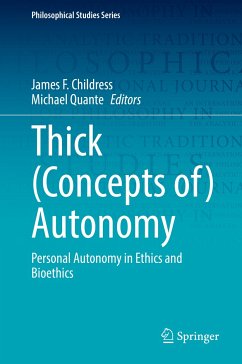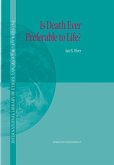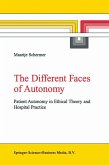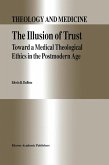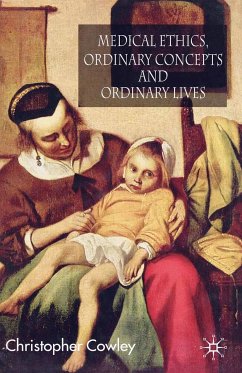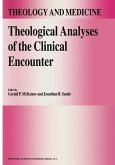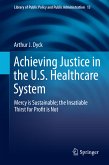Many standard ethical theories and practices, particularly in domains such as biomedical ethics, incorporate minimal, formal, procedural concepts of personal autonomy and autonomous decisions and actions. Over the last three decades, concerns about the problems and limitations of these "thin" concepts have led to the formulation of "thick" concepts that highlight the mental, corporeal, biographical and social conditions of what it means to be a human person and that enrich concepts of autonomy, with direct implications for the ethical requirement to respect autonomy. The chapters in this book offer a wide range of perspectives on both the elements of and the relations (both positive and negative) between "thin" and "thick" concepts of autonomy as well as their relative roles and importance in ethics and bioethics.
This book offers valuable and illuminating examinations of autonomy and respect for autonomy, relevant for audiences in philosophy, ethics, and bioethics.
Dieser Download kann aus rechtlichen Gründen nur mit Rechnungsadresse in A, B, BG, CY, CZ, D, DK, EW, E, FIN, F, GR, HR, H, IRL, I, LT, L, LR, M, NL, PL, P, R, S, SLO, SK ausgeliefert werden.
Hinweis: Dieser Artikel kann nur an eine deutsche Lieferadresse ausgeliefert werden.

